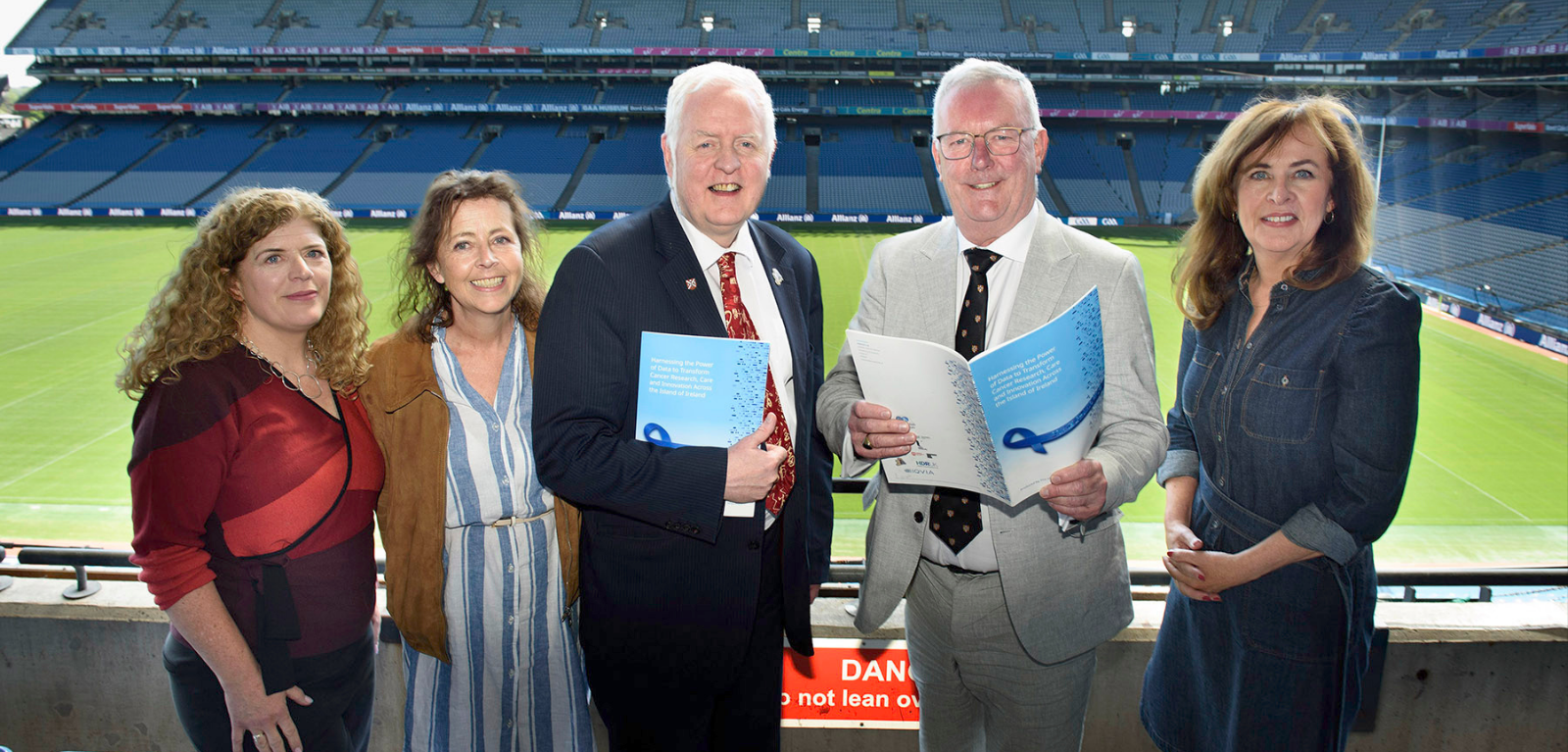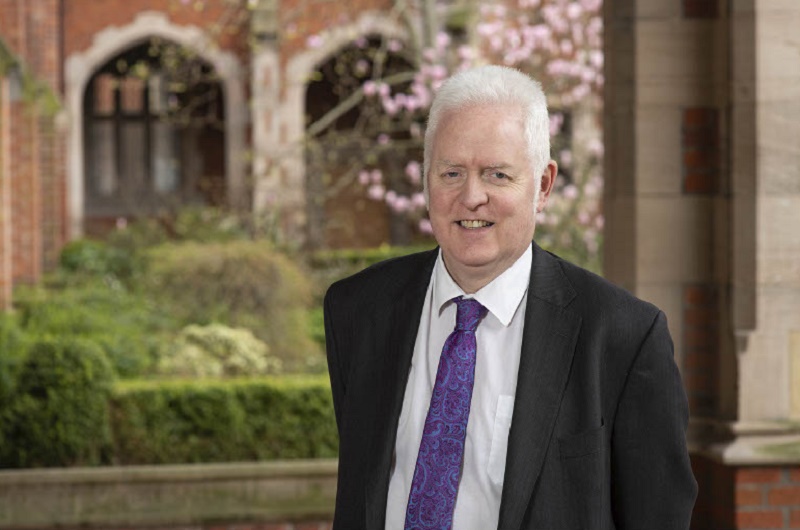New All-Island cancer report highlights life-saving health and economic benefits of data
A new report "Harnessing the Power of Data to Transform Cancer Research, Care and Innovation across the Island of Ireland”, has launched today in Dublin at the Inaugural All-Island Cancer Summit at Croke Park.

The report issues an urgent “All-Island Call to Cancer Data Action”, to be delivered through a 7-Point Cancer Data Plan, which includes recommendations to make a patient's digital medical record available to them, improve access to clinical trials and ensure better patient data collection, including on genomic testing, metastatic disease, cancer inequalities and socio-economic factors.
This urgent Call to Cancer Data Action provides evidence to encourage political leaders across the island of Ireland to fast track its digital transformation to deliver better health and well-being, greater societal benefit, and enhanced economic advantages.
The report was developed by the eHealth Hub for Cancer, which is co-led by Professor Mark Lawler, Professor of Digital Health at Queen’s University Belfast and Professor Aedín Culhane, Professor of Cancer Genomics at the University of Limerick.
Their goal is to strengthen cross-border data sharing and collaboration in cancer data research and its translation to better care.
Professor Mark Lawler, Professor of Digital Health at Queen’s University Belfast and co-lead of the eHealth Hub for Cancer said: “Our research highlights how a digital transformation, from paper to electronic, from byte to bedside, is catalysing a revolution in how we use health data to achieve superior cancer outcomes and drive economic benefit. But we will only succeed together, sharing data and pre-empting the barriers that threaten to derail this digital revolution.
“Northern Ireland’s digital transformation is in full flow – last week, for the first time, everyone who receives health and social care services in Northern Ireland can now access their own health records through “My Care” the patient portal, which is accessible via mobile phone, computer or tablet – a Thomas Edison moment that catapults Northern Ireland into the premier division with Estonia, Europe’s digital trailblazer. Ireland needs to urgently progress its own digital health capability, otherwise a generation-defining moment will be lost.”
The report also highlights how Ireland and Northern Ireland are at different stages of their digital journey, with Ireland lacking a unified digital health system compromising its ability to fully embrace this digital revolution.
Co-author on the report, Professor Aedin Culhane, Professor of Cancer Genomics at the University of Limerick and co-lead of the eHealth Hub for Cancer explains: “Cancer is the leading cause of death on our island, with incidence rates among the highest in Europe and projected to rise sharply, a crisis demanding urgent action. Just as technology and data are solving global challenges, we must bring that innovation to cancer.
“By connecting All-Ireland cancer data and applying next-generation technologies like genomics, we can accelerate research, uncover what drives cancer risk, improve screening and diagnosis, and deliver faster, more personalised care. A modern, secure data ecosystem will drive the innovation needed to tackle our rising cancer burden and give every patient on the island of Ireland a better chance.”
Patient advocate and member of the Northern Ireland Cancer Research Consumer Forum Debbie Keatley said: "It's really important that improving outcomes for patients is at the forefront of what we are trying to achieve here. Today's cancer patients know their treatments have been made possible by research that relied on data of patients who came before us. We too want our data shared to advance cancer research and care, so patients now and in future can have better care and better outcomes.
“Patients are the sources of the data. Privacy and security risks need to be balanced against what's in the best interests of us, the patients. Patients have voices to bring to these debates. The responsible and accountable use of data to improve health and health research is a shared mission and shared responsibility; as equal partners in our care and treatment, we need our health and care records to be accessible to us as well as to health professionals involved in our direct treatment.”
Professor Deirdre Heenan, co-author and Professor of Social Policy at Ulster University said: “Our report highlights how unlocking the power of data can transform cancer care. Ensuring timely access to robust data is essential to drive meaningful research, enable efficient care models, and enhance care quality and outcomes for patients.”
Featured Expert

Media
Media inquiries to Sian Devlin at s.devlin@qub.ac.uk